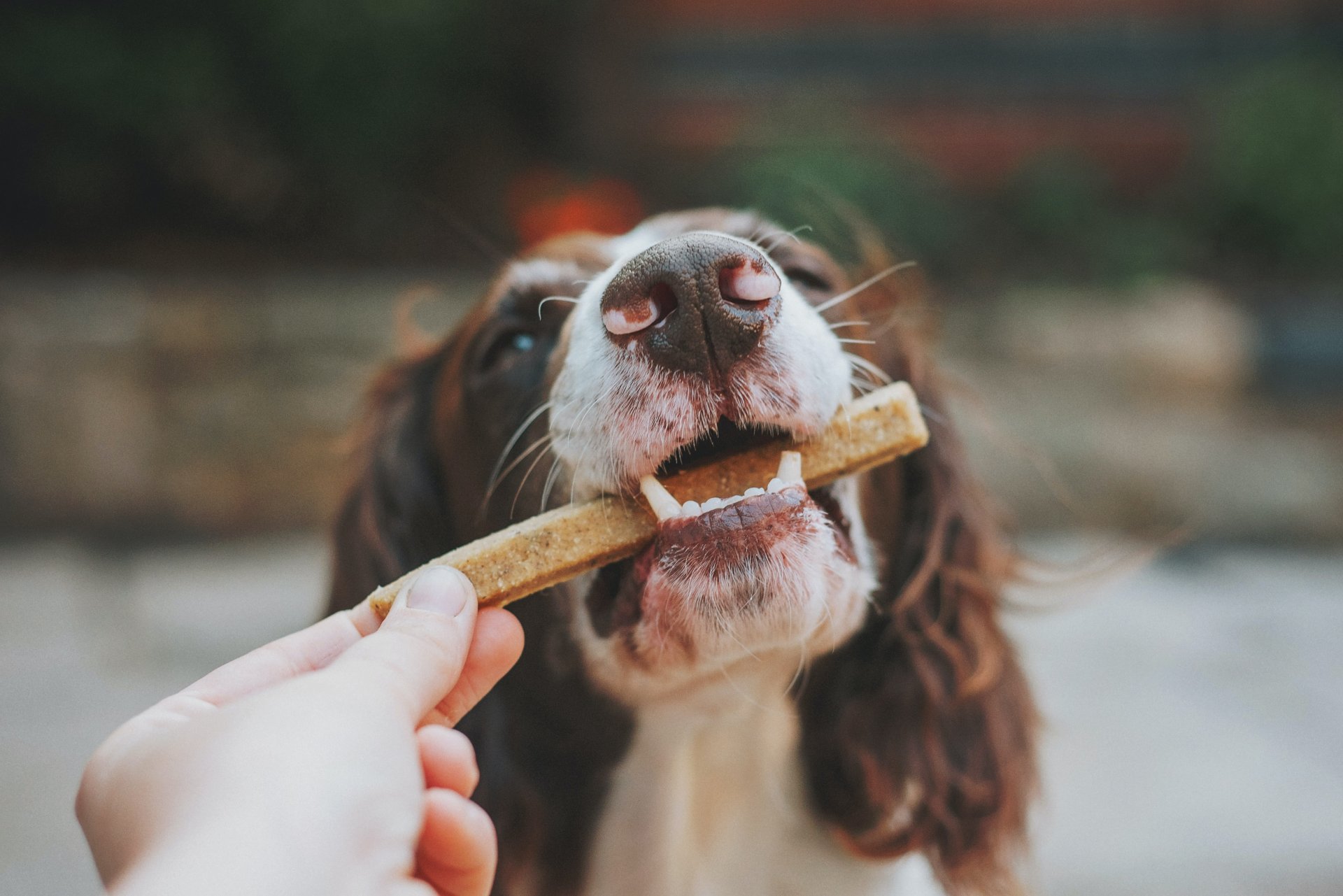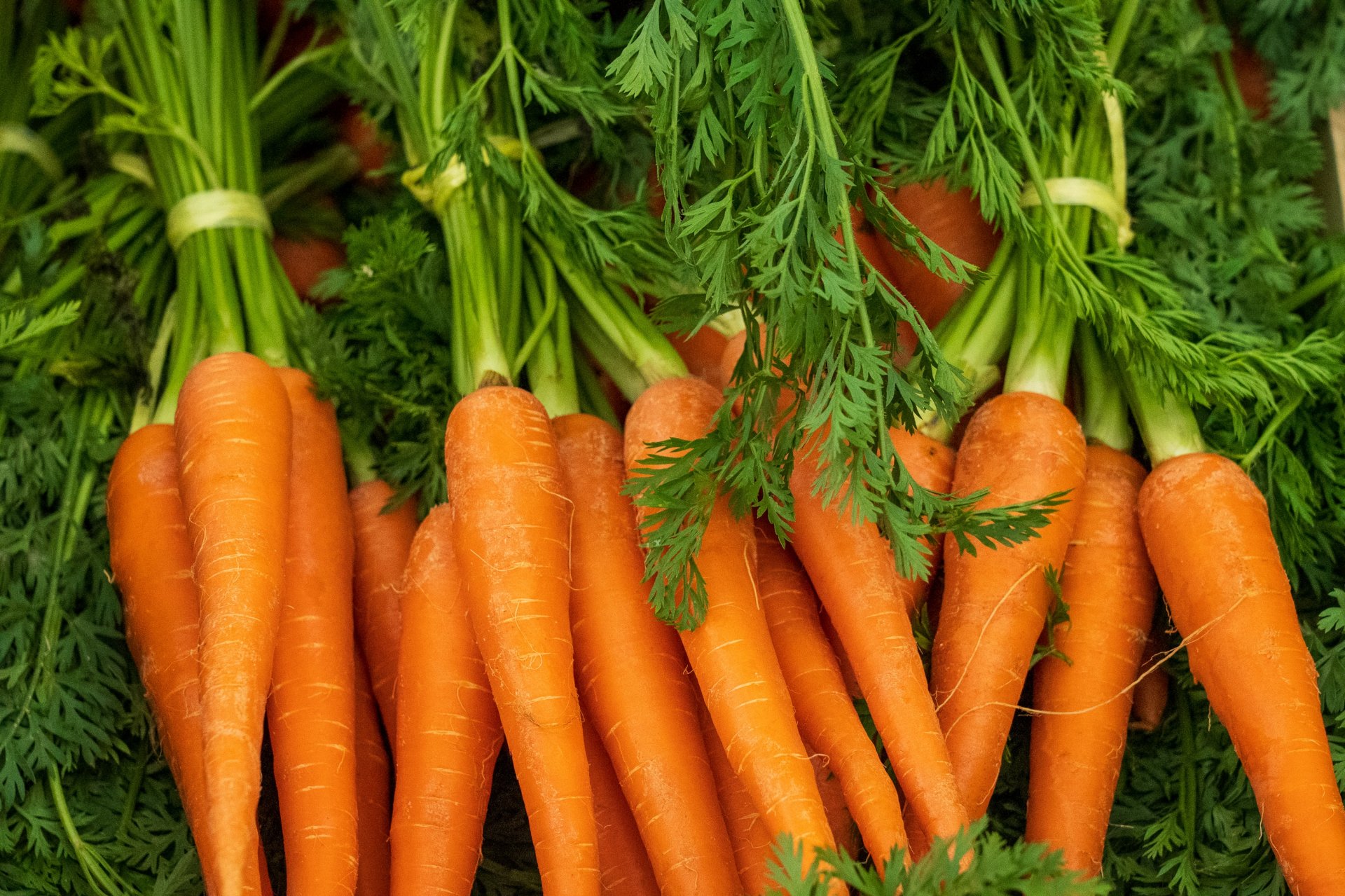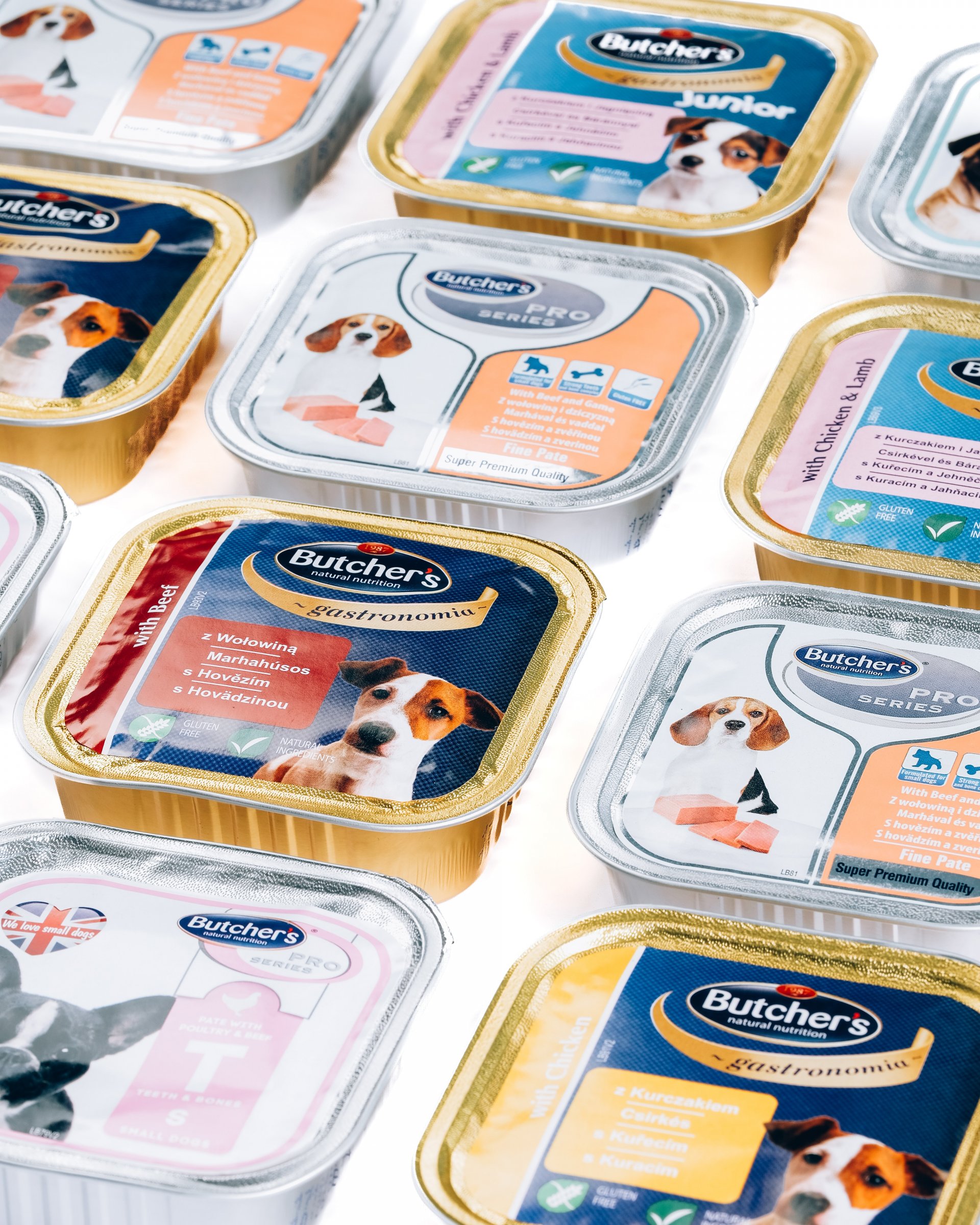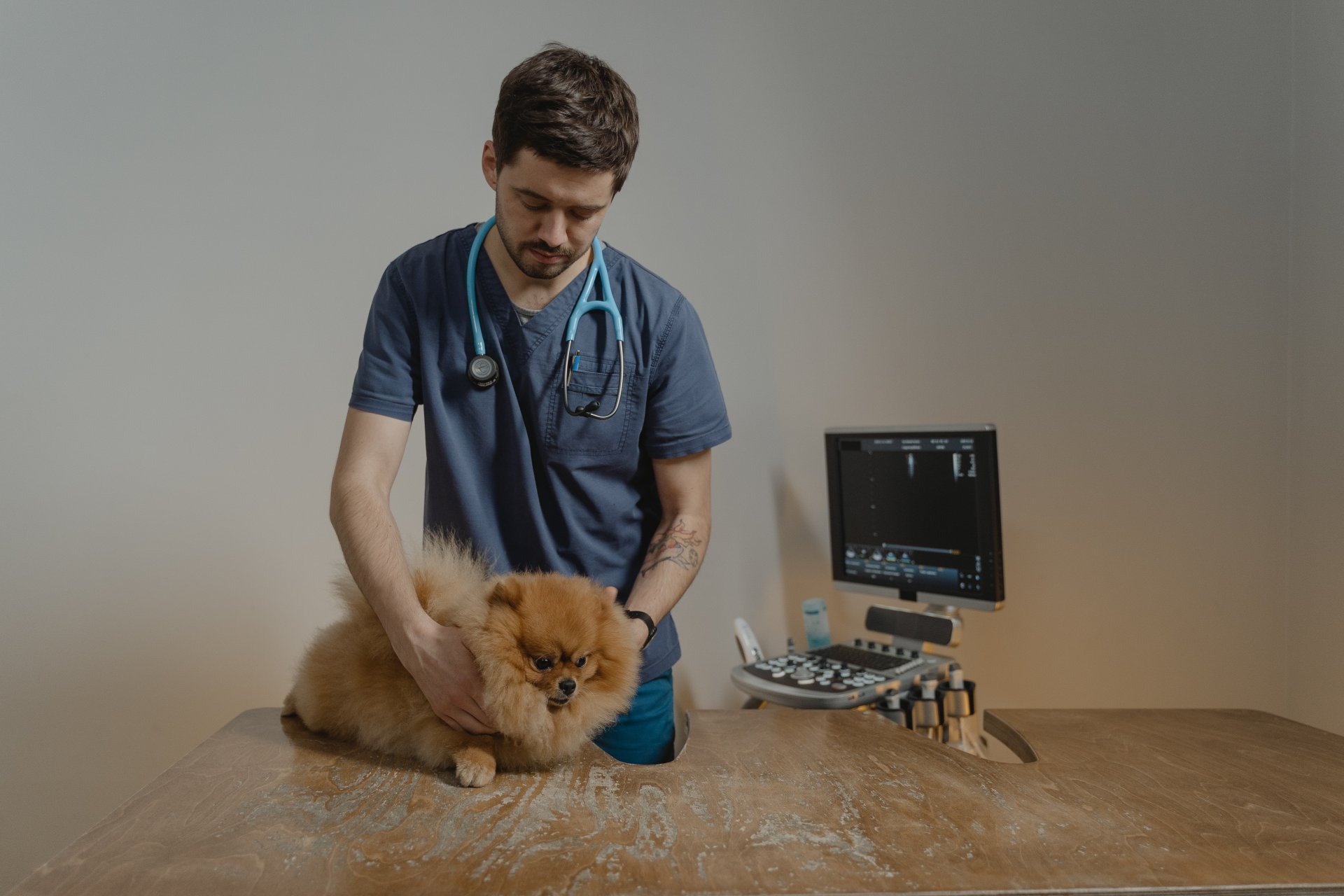Catering for a specialised dog diet guide
Catering for a special dog diet can be tough. Finding the perfect dog food isn't easy, whether your pooch is just picky or there are health reasons for the specialised dog diet.
If you’re a new dog owner or looking to buy a puppy for the first time, doing your research can be daunting. This is why we’ve broken it down to make it easy to understand.
What is a specialised diet?
 A specialised dog diet caters to your dog’s needs and makes sure you’re choosing the best dog foods possible.
A specialised dog diet caters to your dog’s needs and makes sure you’re choosing the best dog foods possible.
There are a number of reasons your dog might need a special diet. The majority of reasons for a specialised dog diet are health-related.
However, with many people adopting a vegan lifestyle, we are seeing more dogs than ever adopting a similar diet to their owners.
Can dogs be vegan?
Types of specialised dog diets
A specialised diet for your dog might be because of a personal choice, or the diet is needed for your dog’s health.
Just remember, that if it is a personal choice fuelling your dog’s diet you make sure it’s dog-friendly first! We’ve put together a comprehensive puppy feeding guide that you can follow.
Health-related dog diets
We’ve covered the most common health reasons for your dog needing a specialised diet. These are usually prompted by a vet.
If you’re considering changing your dog’s diet, please make sure you speak to a vet first to make sure it’s appropriate for your pet.
-
Low-fat dog diet
 If your pet is struggling with its weight or is a dog breed that’s prone to weight gain, low-fat dog food can be a good option.
If your pet is struggling with its weight or is a dog breed that’s prone to weight gain, low-fat dog food can be a good option.
It is also great for dogs suffering from other health conditions like Inflammatory bowel disease and Pancreatitis.
Typical fat amounts for the average dog food are around 15-20%, whereas low-fat dog food will usually be around 7-10%.
-
Diets for dogs with kidney issues
If your pet has kidney problems, then it’s best to offer specialised dog food. This is often prescribed by your vet following a consultation.
They’ll usually offer low-protein dog foods with a higher water percentage.
-
Sensitive stomach diets for dogs
You won’t see any dog foods that promise to suit a sensitive stomach for canines. It’s more about figuring out what could be causing the reaction in your dog.
It might be that a type of protein or grain is causing your dog to have frequent diarrhoea. Always make sure to consult with your vet if your dog often has a dodgy tummy.
-
Low sugar for diabetic dogs
 There isn’t the same option for treating diabetes in dogs as there is in humans. As they’re unable to produce insulin, it’s more important to manage the sugar levels your dog consumes.
There isn’t the same option for treating diabetes in dogs as there is in humans. As they’re unable to produce insulin, it’s more important to manage the sugar levels your dog consumes.
Dog foods for diabetic dogs typically contain fewer carbs and higher amounts of fats.
If your vet confirms that your dog is diabetic, they’ll be able to offer expert opinions on appropriate dog foods.
-
Specialised dog diets catering for allergies (e.g. skin sensitivities)
Just like humans, dogs can suffer from skin issues. Classic signs your pet might have skin allergies are excessive itching, licking, or biting at their skin.
You can often find dog foods marketed as being allergy friendly. This is typically where they avoid the most common food allergens for dogs.
Always speak with a vet professional before removing food from your dog’s diet as there may be another cause.
-
Reduced salt diets for dogs with heart problems
If your canine has a heart condition, then it might be beneficial to consider reduced salt dog foods.
The reduced salt dog foods help to encourage healthy heart function. Always speak to vets first to get their professional recommendations.
-
Food rich in supplements for dogs with arthritis or skeletal issues
Offering dog food that’s rich in supplements and nutrients that encourage healthy joints and bones is a great choice for dogs with arthritis or other skeletal issues. Look out for things like Omega 3, Vitamin C, Vitamin D and Hyaluronic Acid.
If you’re unable to find food that comes with the supplements already in, you can look at purchasing dog supplements to add. Always speak with your vets before buying supplements online.
Specialised dog diets for non-medical reasons
-
Gluten-Free/Grain Free dog food diets
This might not necessarily be derived from health reasons but is more related to changing public opinions on what’s best to feed your dogs.
Those anti-grain suggest that in a natural environment, they might never opt to consume it. Whereas pro-grain foods argue that most dogs don’t have issues consuming foods with wheat or gluten.
-
Raw diets for dogs
 A raw food diet for dogs refers to any produce (vegetables and fruit) or meat that hasn’t been cooked before being given to your pet. This often means that valuable nourishments aren’t lost in the cooking produce.
A raw food diet for dogs refers to any produce (vegetables and fruit) or meat that hasn’t been cooked before being given to your pet. This often means that valuable nourishments aren’t lost in the cooking produce.
Although you should always thoroughly clean your food to ensure it is free from pesticides before feeding. Getting expert advice from your vet first is advisable on what raw foods are dog friendly.
It’s important to note that your pet will have an increased chance of getting intestinal dog worms if fed raw meat.
-
Vegetarian and vegan diets for dogs
There has been a lot of controversy in the news lately about feeding a dog a vegan diet. Can dogs really be vegan?
It’s incredibly important to make sure your dog is getting the nutrients it needs from its healthy balanced diet. Consult with a medical professional if unsure.
How do I know if my dog needs a specialised diet?
The most common way to find out your dog needs a specialised diet is from your vet. If your dog suffers from things like diabetes, heart issues, skeletal problems, and liver issues then it’s likely your vet will suggest certain dog foods.
If you are looking to adopt a specialised diet for your dog for a non-medical reason, make sure to consult with your vet first.
The most common specialised dog diet:
However, there are two more common needs for a specialised diet. And it might not be ones you’ve ever considered.
 Life stage feeding for your dog
Life stage feeding for your dog
A puppy will have different requirements than an adult or elder dog. So it’s important to choose a dog diet that matches their life stage.
You’ll typically be offered multiple options for most dog food brands. You’ll see “puppies”, “adult dog” and “mature adult dog” options. Although they can be called different things depending on the brand.
With the dog food industry having more competition than ever before, you might even spot a dog food that caters for “neutered” and “un-neutered dogs”. The reason for this is a neutered dog tends to be less active and therefore needs fewer calories.
Read our tips on feeding, nutrition, and etiquette for your dog.
Dog food feeding to match your dog’s size
Smaller dogs have smaller jaws, so it makes sense that they might have different needs in terms of dog food.
Some pet food products will offer a selection of food for small dog breeds and another option for larger dogs.
How to cater for your dog if they need a specialised diet:
 1. Consult with a professional first
1. Consult with a professional first
The most important thing to do is speak with your vet before radically changing your dog’s diet. Even if you’re doing it for a medical reason, get professional advice first.
You might believe that food is causing a problem, but self-diagnosing can mean you might miss the real cause.
2. Do your research!
Knowing what’s out there goes a long way in catering for a dog with special dietary needs.
For example, knowing the average salt per 100g of dog food will help you recognise ‘low-salt’ brands of dog food.
3. Don’t blindly trust labels
Many dog food suppliers will use marketing gimmicks like ‘low-fat dog food’, whereas in reality, they’re at the lower end of average.
This is where doing your research really pays off. Don’t just trust the words written on marketing materials or dog food packets, always look at the label!
4. Make everybody appropriate informed
If you hire dog walkers, pet sitters or even dog trainers it’s important to make them aware of your dog’s dietary needs. This way there will be far fewer slip-ups when they are around your pooch.
5. Don’t be disheartened
You might find that you don’t get it right the first time. That’s ok! It can be difficult to decipher your dog’s allergy immediately. Just keep trying and keep consulting with your vets.
6. Limit cross-contamination
If your dog has an allergy, make sure that anything that comes into contact with their food isn't cross-contaminated. This is especially important if you have more than one dog and they each have specialised diets.